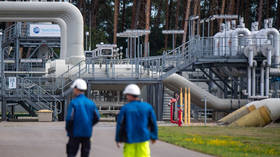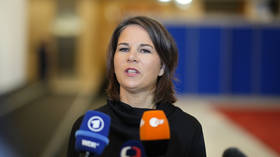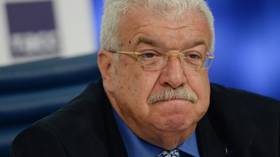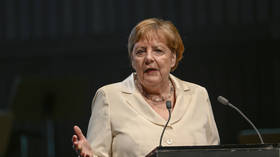European officials blame Russia for Nord Stream troubles

Russia is deliberately sabotaging the Nord Stream 1 natural gas pipeline to spite the EU, European officials have claimed, questioning Moscow’s explanation for an indefinite delay in restoring service.
State-owned energy giant Gazprom informed its European customers on Saturday that it could not safely resume operations until it had fixed “oil leaks” discovered in a major turbine during a maintenance operation.
Nord Stream was set to come back online just after midnight Saturday morning after three days of maintenance. The leaks, reportedly affecting “cables connected to speed meters of a rotor,” were discovered during a technical inspection with the turbine’s German manufacturer Siemens. Moscow had earlier warned that the pipeline’s operation was threatened by sanctions, which had created a shortage of spare parts.
However, Siemens argued the company had alternate turbines at the compressor station where the leak had been discovered and could use one of those in case of a real emergency. “Such leaks do not normally affect the operation of a turbine and can be sealed on site,” they claimed.
European Commission spokesman Charles Michel condemned what he called Russia’s “use of gas as a weapon,” declaring it would not “change the resolve of the EU” as the bloc works toward “energy independence.”
Commission press service chief Eric Mamer slammed the “fallacious pretenses” he claimed Gazprom had used to shut down the pipeline, holding it up as proof of both their “cynicism” and their “unreliability as a supplier” and suggesting Moscow “prefer[red] to flare gas instead of honoring contracts.”
German parliamentary foreign affairs committee chair Michael Roth denounced the shutdown as “part of Russia’s psychological war against us” and accused President Vladimir Putin of “violat[ing] contracts without scruples….even at the expense of his own economic interests.”
German gas regulator Bundesnetzagentur’s president Klaus Mueller warned Germans that it was “down to each and everyone” to conserve resources in the absence of Russian gas.
The G7 countries agreed on Friday to a price cap for Russian oil, vowing not to provide insurance or other forms of financing to any ship carrying Russian oil above that price, which has yet to be decided, but which participants hope to have put in place by February. Despite several rounds of harsh sanctions, Moscow has made £600 million more from oil sales in June than it did the previous month thanks to soaring energy prices threatening to plunge all of Europe into a depression.
A second natural gas pipeline, Nord Stream 2, was completed earlier this year and could alleviate much of the suffering caused by the slowdown at Nord Stream 1, but it has never been put into service due to sanctions.













